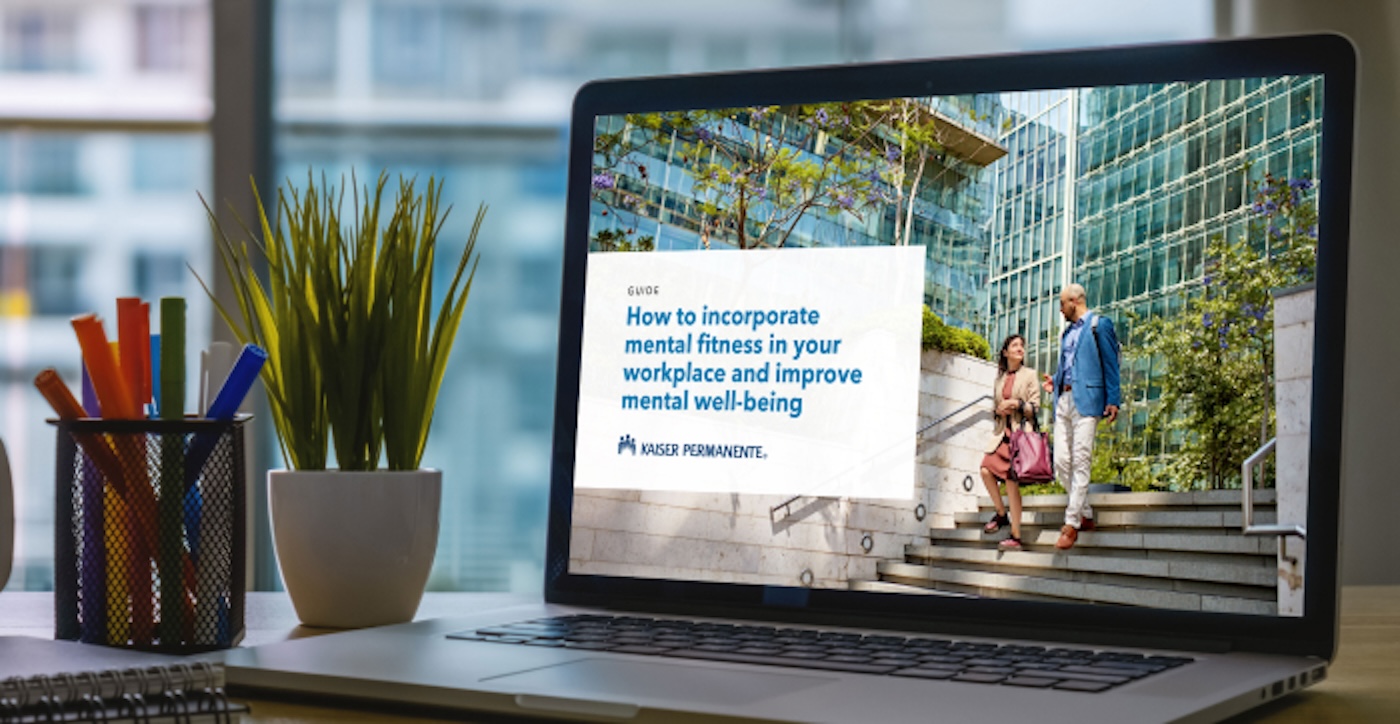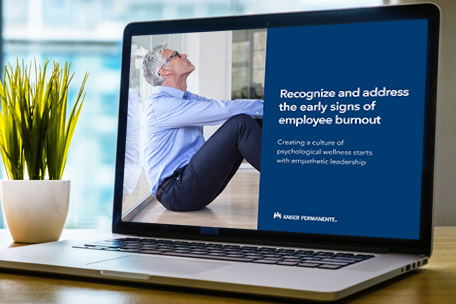Mental health insights and resources for business
Mental Fitness Guide

Explore mental health resources
Additional resources you may find helpful

KP Care & Value
Supporting mental health and wellness

Article
The mental health toll cancer takes on employees — and how employers can help

Article
High blood pressure in women — a high-stakes workforce health issue
Find the right plan for your business. Call 1-877-305-7933






